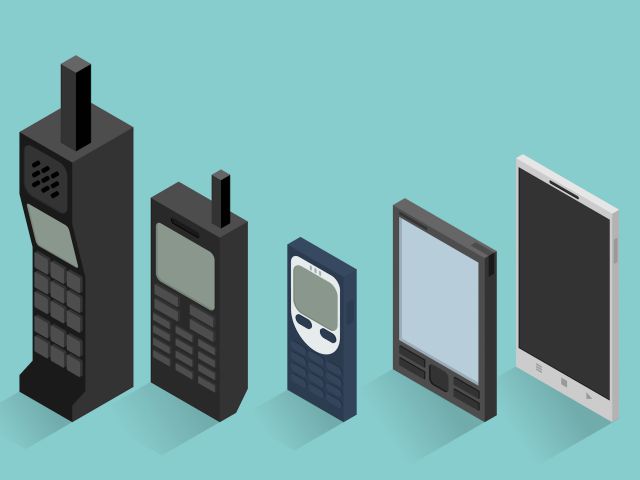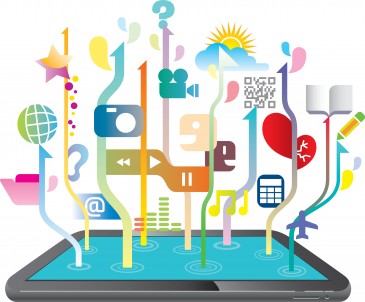We conclude a series of articles that draw a parallel between smartphones and PCs with material-reasoning about the further development of technology and the industry as a whole.

It's time to think about what will happen next. There are signs of maturity in the smartphone market. More than two billion people own a smartphone, and the market is already shifting towards a new paradigm of innovation: from a cycle of penetration to a cycle of displacement. The penetration cycle is characterized by a stronger emphasis on functionality that can attract potential buyers and force them to make their first purchase. As smartphones enter the displacement cycle in the main developed markets, the surge of innovative discoveries will give way to the evolutionary trend of new products. In this regard, the situation with the hardware for smartphones will soon resemble what happened with the computer hardware. In the so-called 'post-PC' era market, it is no longer important which manufacturer will release a PC with updated functionality. A similar development of events in the near future will overtake smartphones.
Speaking of the post-smartphone era, it's worth making it clear that at the moment there is no magic device that can replace smartphones as a class. The use of this term in this regard means that the 'post-mobile' era will be different from the 'post-PC' era, which was characterized by the massive replacement of personal computers by smartphones. There will not be a single product that can sell one and a half to two billion annually like smartphones. And whatever the future holds for the smartphone industry, there are still five to ten years before the mass penetration of these devices / technologies into the market. Moreover, it is strategically important to expand the smartphone user base by another billion people, and this will be much more difficult to advance than acquiring the already existing two billion. This will happen due to the decrease in the cost of 'hardware' and communications, which in turn will be due to the implemented innovations in the industry.

The most important platform for future development has become the smartphone itself and its ever-growing user base. It's time to shift our focus from smartphone hardware, mobile operating systems, and even the apps themselves to what opportunities they offer to users. As my buddy Benedict Evans likes to say, “Google and Apple both won the war for mobile space.” Apple is supported by the world's wealthiest users, while Google controls 80% of the rest of the market. Although the share of users iOS and Android is a hot topic, it will focus on what happens outside the platforms.
FinTech
One example of new trends is FinTech (short for 'financial technology'; business specialization, which is based on the promotion of goods and services through software, approx. Elir). By putting a computer with an Internet connection in their pockets of two billion (and in the future, five billion) people, corporations have opened up vast new horizons for commerce. In the markets of China and India, we can see how much of digital commerce is carried out through smartphones, not PCs. And a similar reality will soon reach the US and European markets. Having become the center of commerce, banking, lending and the main device when using other financial services, the smartphone can potentially attract more customers. I am deeply convinced that the smartphone in the pockets of five billion people will play a key role in the ubiquity of financial services.
Artificial Intelligence
The fashionable term AI, artificial intelligence, is gaining momentum. It seems that all the major players in the technology market (Microsoft, Google, Apple, Amazon, Facebook, Baidu and others) are working on their kind of examples of such technology. Before us is another industry that will build on the achievements of the era of smartphones. The real 'presence' of AI, suitable for everyday 'communication', will require significant computing power, both local and remote. It will also require stronger hardware security with end-to-end encryption for cloud services. The mobile platform will be at the heart of AI, and by analogy, the most exciting innovations in virtual reality will also originate in the mobile ecosystem.

Examples range from drones, smartwatches / cars / homes / cities, wearables and embedded electronics to technologies that have yet to be invented or hit the market that will flourish on the fertile soil of the mobile ecosystem. Smartphones have laid the platform for future development that will replace them over time. As the 'mobile' era dies, it's time to pay attention to the new use cases that smartphones are opening up to us – perhaps the most widespread type of PC in the history of the industry.
Original material by Ben Bajarin, Lead Analyst at Creative Strategies Inc.
Elir: the smartphone as a class is as close to its maturity as possible. However, this does not mean that such devices will soon disappear and be replaced by more advanced technology. This is one of the differences between smartphones and PCs, which the author of the material tried to convey to the reader. And in fact, a smartphone is an extremely convenient and versatile tool that is always with the owner and which is able to help quickly solve a particular problem, whether it be setting tasks for subordinates or transferring funds between accounts. Such commercial potential could not remain unnoticed by corporations, digital commerce is reaching a qualitatively new level. The end of the era of the heyday of smartphones cannot be equated with the complete disappearance of these gadgets, it is possible that penetration, on the contrary, will increase. But it is the use cases that will come out on top, not the hardware features.
Despite the feeling of some kind of understatement, the material describes quite real trends and strategies for the development of the industry. The stated theses are quite universal and can be applied to any of the current platforms. A controversial point, perhaps, is the time of implementation of the projects predicted by the author. Emerging markets, due to individual characteristics, may get on this train with a delay, this cannot be ignored in the future. Let's remember the smartphone at its peak and we will follow the evolution.
